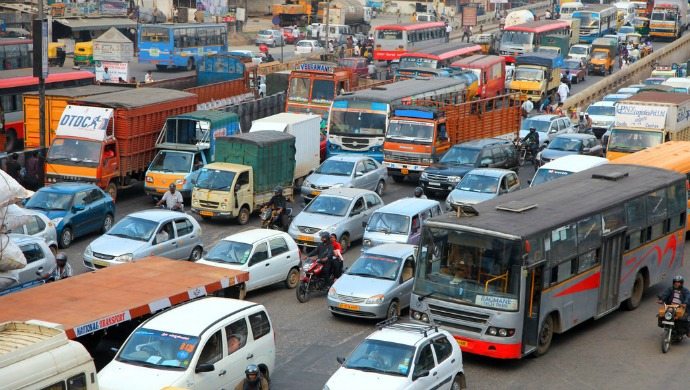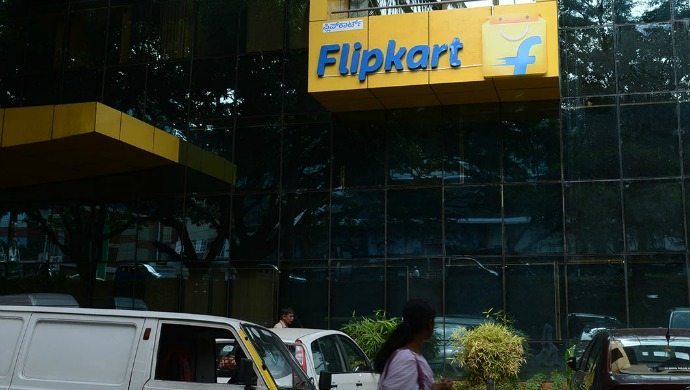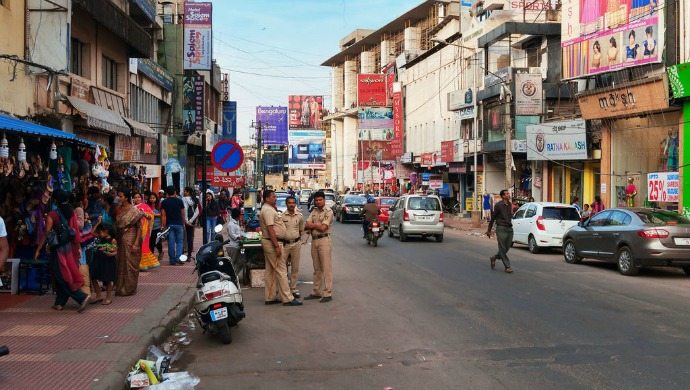Contrary to popular perception, Bangalore doesn’t have much credentials to become a prime destination for global entrepreneurs, except the vastness of the market

Two federal governments in India, both significant contributors to the country’s GDP, are on warpath. The state of Karnataka has been fighting with neighbouring Tamil Nadu for the last many days over releasing Cauvery River water for irrigation purposes.
The Supreme Court ordered Karnataka to release water to tamil Nadu. The directive, however, didn’t go well with the people of Karnataka; they believe that the apex court administered injustice to them by passing an order in favour of Tamil Nadu, at a time when the state itself is undergoing severe water shortage.
Mobs took to streets to protest the order, set government and private vehicles on fire in the capital city Bangalore, disrupted road and rail services in the city, and forcefully shut down businesses, mainly in Bangalore. The violence lasted for two-three weeks. And the dispute still remains unsettled. (The latest update is that the Karnataka government is not willing to share water to Tamil Nadu till December this year).
Retailers and businesses including startups were badly hit due to this inter-state war as they lost business worth millions of dollars. Online retailers and food-ordering and delivery startups were the worst affected. Companies like Abraaj Group-backed Big Basket and Unicorn startup Flipkart were unable to fulfil the orders as the movement of goods was disrupted and lost millions of dollars.
Don’t miss this: Indian startups, tighten your purse strings as the time of excessive VC funding is over: Experts warn
According to industry body Assocham, the violence resulted in an overall loss of INR 22,000-25,000 crore (US$3.3-3.7 billion) for Karnataka alone. And a permanent resolution to the conflict is nowhere on the horizon.
“Last many weeks have been challenging for consumer companies, especially that are operations-intensive due to several factors causing discontinuity and disruption in the business,” says K Ganesh, serial entrepreneur and Partner of Growthstory.in and Chairman of Portea Medical. “We have had unscheduled ‘bandhs’ that disrupted the regular operations. Unanticipated and sudden suspension of operations creates problems for everyone. But things have returned to normalcy now,” he adds.
While the dust has settled, the violence has brought ignominy to Bangalore, labelled as the Silicon Valley of India. For a city which is already facing grave infrastructure and connectivity problems, the violence came as a dampener. All this indicates that Bangalore is nowhere close to becoming a Silicon Valley in the recent future, unless it addresses basic issues such as traffic and connectivity.
Basic issues dogging the city
Contrary to popular perception, Bangalore doesn’t have much credentials to become a prime destination for global entrepreneurs, except the vastness of the market. The first thing splashing one’s mind when thinking of Bangalore is its horrible road traffic, thanks to an ever-increasing migrant population and crumbling infrastructure which is rickety at its best.
It has become almost impossible to commute on a business day. Traffic snarls have become a common phenomenon. It takes more than two hours to travel a stretch of 10km during peek hours (from 9 am-11 am and from 5 pm-9 pm).
Commuting on a rainy day is unimaginable. Traffic signals go on a strike and drainage system is the worst, and the city comes to a complete halt. Sewages overflow flows are common, causing flooding of roads. During rainy season, sewage water will get mixed with rain water.
At the core of the problem is the fact that the entire city was developed reclaiming water reservoirs and lakes, whose consequences manifest during rainy seasons.
Public transport system is a mess, forcing professionals to prefer personal vehicles to commute to office, which further adds to the traffic woes. Road-widening and expansions are an ongoing process, but the traffic woes continue to remain the worst nightmare. The construction of fly-overs are not helping much.
Metro train services are not helping either: the project is moving at a snail’s pace. Even though the work was started way back in 2006, the first phase was opened to public only in 2011. The second phase is yet to start. It appears the project is far from over, although it is slated to be complete by 2022.
Don’t miss this: With Alibaba in the horizon, who among Flipkart and Amazon will be the king of India’s e-commerce scene?
Mature ecosystem, but immature entrepreneurs
Bangalore is world’s second fastest-growing startup market. As per a 2015 survey, while it is ranked 15 in terms of the best startup ecosystem in the world, it was the only Asian city apart from Singapore to figure in the top 20.

A Flipkart office in Bangaloe (Image Credit: LinkedIn)
The city has more startups than any other cities in the world, and new startups crop up almost every day. It is where behemoths like Flipkart and Myntra are headquartered. However, infrastructure and related facilities don’t improve corresponding to the number of startups coming up. There is not much improvement on the registration part as well; the same daunting paper work is still haunting entrepreneurs, even though there is a slight improvement.
There are certain myths associated with Bangalore. Funded startups prefer certain locations like Indiranagar and Kormangala, two tony neighbourhood areas in the city, to base their business. Office rent and cost of living is too high in these areas, but funded startups don’t see any harm in setting up offices in these locations. And they spend huge bucks on building palatial offices.
According to Anup Mohan, COO of Vilara (a unit of VCs-backed fashion e-commerce startup Voonik) and founder of Styl, these are actually unnecessary costs which can be saved. “Most startups do such things in order to attract VC money and they believe these locations are more accessible for different stakeholders. I feel they should save these unnecessary costs by setting up offices in the outskirts of the city and focus on the core business. Otherwise, when an investment crunch happens, they will find the going tough.”
A pall of gloom has descended in the real estate sector as well. People are afraid of buying new plots and homes, as they feel the city is fast becoming uninhabitable. Air is polluted as the number of vehicles hitting the streets is on the rise. Water is becoming non-drinkable, too.
According to communication professional Pradeep Kumar J, the availability of water is also dogging the city. “Residents mainly relies on Cauvery water for day-to-day requirements. But it is unreliable. So, some rely on private water services, which is adding to their living costs.”
“In addition, certain areas in the city are facing power shortage for four-five hours. This is also prompting people to look for other options,” he adds.
“We do need to beef up the infrastructure, see how to handle traffic, have better connectivity for voice and data, ensure water and power availability so that startups can focus on their core business,” adds Ganesh.
Bangalore, despite having a huge potential, is in a shambles. It is high time the city administration and government have identified the problems and resolve them with better planning and execution. Else, it is not very far when the city goes off the startup radar.
—
Image Credit: 123rf.com
The post Will Bangalore get its Silicon Valley tag anytime soon? It’s unlikely with its unending urban woes appeared first on e27.
